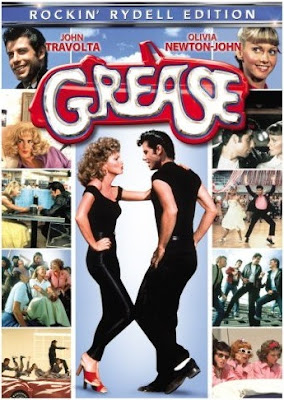(English Traslation below each paragraph)
Como sabéis, ayer fue la final de Eurovisión 2013 y quería contaros algunas cosas sobre este concurso. He encontrado este video, donde se resumen todos los ganadores desde el principio de este certamen de la canción hasta hoy en día, a excepción de la ganadora de este año, que fue Emmelie de Forest, con su canción "Only Teardrops", que representó a Dinamarca.
As you know, yesterday was Eurovision Song Contest 2013 and I wanted to tell you some things about it. I have found this video, where they resume all the winners since the beginning of this contest, except for this year whose winner was Emmelie de Forest with her song "Only Teardrops", representing Denmark.
Lo he visto y voy a hablaros de algunas curiosidades que he observado y que me han llamado la atención:
- El país que más veces ha ganado ha sido Irlanda.
- Han ganado 26 países distintos.
- En 1969 hubo un empate entre 4 países (uno de ellos, España).
- Al principio, cada país cantaba en su idioma.
- Las reglas cambian continuamente. Por poner un caso, Celine Dion ganó representando a Suiza cuando su nacionalidad es canadiense. He buscado en la red por todos lados y no he encontrado una buena razón para que representara a este país. Por favor, si lo averiguáis, contádmelo en los comentarios.
- Otro grupo conocidísimo que ganó Eurovisión fue ABBA.
- Se puede ver cómo va cambiando la sociedad (la moda, por ejemplo) e incluso la Geografía. Por poner un caso, antes participaba la URSS y ahora son Rusia, Latvia, Azerbayán, etc.
- En 1979 España iba a ganar pero, cuando nos tocó votar, le dimos muchos puntos a Israel (que eran los segundos) y eso les hizo ganar. Alucinante, ¿no?.
- Yugoslavia, un país que ya no existe, ganó una vez.
- La música sueca (Suecia ha ganado 5 veces) suele estar representada por músicos pop y de música dance/disco.
I have watched it and I'm going to tell you some curiosities and observations I have thought of:
- The country that has won more times is Ireland.
- 26 different countries have won.
- In 1969 there were a tie between 4 countries (one of them, Spain)
- In the very beginning, each country sang on their own language.
- The rules change all the time. For instance, Celine Dion won representing Switzerland and she's canadian. I have looked for on difference websites and I haven't found a good reason why she was representing this country. Please, if you know it, let me know on the comments.
- Other famous band who won Eurovision was ABBA.
- You can see how society changes (fashion) and even Geography. For example, before, it was the URSS and now it's Russia, Latvia, Azerbaijan, etc.
- In 1979 Spain was going to win but, when we had to vote, we gave many points to Israel so they won. Amazing, right?
- Yugoslavia, a no longer existing country, won once.
- Swedish music (they have won 5 times) usually presents pop bands and disco music.
Y para terminar, en el vídeo de arriba, tenéis una recopilación de algunas de las canciones españolas que se han presentado a Eurovisión y que son más conocidas. Espero que os guste y, como siempre, los comentarios son bienvenidos.
And to finish, on the video above, you have a compilation of some of the most well-known Spanish songs that have participated in Eurovision over the years. I hope you enjoy them. As usual, comments are welcomed.












